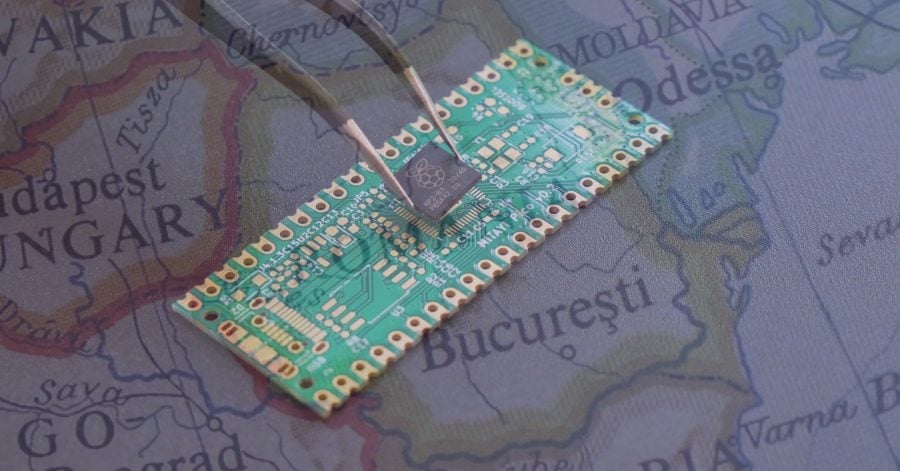The Romanian Government, through the Minister of Economy, has opened the applications for the National Recovery and Resilience Program (NRRP)’s €500M fund for the microelectronic vertical. Big companies, SMEs, and start-ups, as well as research, academia, and educational projects can apply.
Between the 10th of January and the 4th of February, companies can apply to promote their solutions that target low-power processors and semiconductor chips. The applications must be in English and delivered to the Minister of Economy via the email [email protected] according to the methodology.
Florin Spataru, the Romanian Minister of Economy, explained in the official press release that they are looking for two types of solutions: applied research and translating research results into market solutions by facilitating “first industrial deployment“.
The approval of the final projects will be done following the decision of the EU and a Government Decision based on Romania’s participation in IPCEI-ME/CT. The IPCEI-ME/CT has four themes: Sense, Think, Act, and Communicate, so startups’ solutions must address one of these.
Based on the methodology, Romania’s main objectives are:
>>> “structuring and developing the skills of design, manufacture, and application of microelectronic components and systems in a coherent national ecosystem;
>>> securing intellectual property and accelerating the application of advanced technologies in key areas of the national economy such as the automotive industry, precision health or agriculture, space, defense, aeronautics;
>>> coordination at European level through participation in the national ecosystem in a multinational project intended to be implemented as a project of common European interest (IPCEI).”
What is IPCEI?
In a press release from September 2021, Romania’s recovery and resilience plan was approved by the EU and it will be financed by €14.2B in grants and €14.9B in loans. The purpose of this investment is to aid the country’s recovery post-pandemic status by embracing sustainable digital transitions until 2026.
The NRRP is supported by the Important Project of Common European Interest – Microelectronics/Communication Technology (IPCEI-ME/CT). The IPCEI is an initiative looking to implement the European Union’s Industrial Strategy.
This initiative was approved in December 2018 and it featured 32 companies from four EU member states – France, Germany, Italy, and Austria, as well as the UK. The founding companies will contribute between 60%-80% of the total investments and the rest will come from the EU member states.
The target is to accelerate advanced technologies in areas such as automotive, health, agriculture, space, defense, and aeronautics. To do so, it brings together knowledge and financial resources to overcome the market or society’s challenges. The projects focus on Research and Development and First Industrial Deployment (FID).
The semiconductor market
In 2022, the global semiconductor market is projected to grow and reach over €500B. In 2021, European semiconductor sales amounted to over €3.5B. Although it has been growing in the past decade, the EU depends on chips manufacturers from other regions, like the US or China.
Cornel Amariei, co-founder and CEO of .lumen research startup that aims to build high tech glasses for the blind, shared with us in a previous interview that due to the COVID pandemic there have been delays in the electronics market.
“There is an electronic crisis in the world that no one has seen before. We have team members who have been working for 30 years in electronics. It’s one thing manufacturing in large quantities, but we cannot even prototype. It’s difficult to plan,” Amariei shared with us.
Semiconductors are an important component of electronic devices, like smartphones. A semiconductor is a substance that conducts electricity and that will be essential in developing the AI market.
It is said that by 2025, global revenues from AI-related semiconductors will reach over €57B. Big companies like Intel, Samsung, Broadcom, Qualcomm, Apple, and Google are involved in the development of AI chips. American SambaNova Systems was the top-funded AI chip startup worldwide in 2021, receiving almost €1B in funds.







